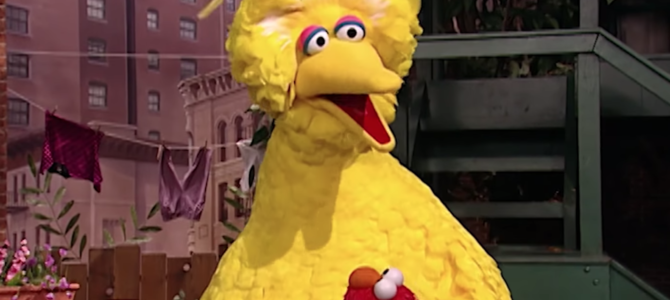
In an age of hundreds of channels and streaming options, there is no constitutional right to watch first-run episodes of the popular children’s show “Sesame Street.”
When “Sesame Street” cut a deal with HBO in 2015 to move its first-run episodes to the cable giant from public television stations, the wailing from the left was loud and long. The idea that new editions of a program that is widely described as a national treasure would no longer be available for free was considered shameful and an indication that America didn’t care enough about children.
Four years later, Children’s Television Workshop, which produces “Sesame Street” and is now called Sesame Workshop, has taken the next logical step. Starting in 2020, new episodes as well as the library of 50 years worth of the show’s episodes will only be seen on a new streaming app and channel called HBO Max.
Like the original decision to move the show to cable, this, too, is being denounced by some liberal pundits as well as by some conservatives, such as the Parents Television Council (PTC), a group founded by Brent Bozell to oppose graphic sex, profanity, and violence in the media. While liberals make broad arguments about a right to free “Sesame Street” episodes, the PTC asserts that any deal that makes “Sesame Street” available only to youngsters whose parents can afford the estimated $15 per month (the current approximate cost for adding HBO to your cable system), is unfair and creates a two-tier system that is “holding hostage under-privileged families.”
Nobody’s Pulling the Plug on Big Bird
The devotion that characters such as Elmo and Big Bird inspire among their pint-sized fans is genuine. But the talk about holding hostage parents who don’t want to pay a streaming or cable fee treats the show as if it were a federal entitlement. More importantly, liberals putting out the idea that not having to wait nine months until new episodes migrate from HBO to public stations free to anyone with a television and antenna is something akin to a constitutional right exposes the absurdity of the discussion about the show and all government-funded television.
Every time Republicans have threatened to end funding for the Public Broadcasting System and its radio cousin National Public Radio, the left responded by trotting out Big Bird, Elmo, and the rest of the adorable “Sesame Street” gang of Muppets. Rather than defending the indefensible notion of a taxpayer-funded government broadcasting system in the age of cable and the Internet, the argument instead turned into one about pulling the plug on a big yellow bird that everybody loves.
Back in the 1960s, when television meant three national channels and a smattering of independent outlets located only in major markets, there may have been an argument for public broadcasting. With so few choices available, the idea of the state creating an educational alternative to the commercial networks made some sense. In that context, federal funding for the network that provided a home to shows such as “Sesame Street,” documentaries, classical music, and quality British imports was defensible.
Liberals tended to dominate the news programs and documentaries. Large, liberal nonprofit foundations that have always found the government channel a friendly place to push their ideology have heavily influenced PBS programming. But WNET, New York City’s PBS affiliate, was also home to the original television news discussion show William F. Buckley’s “Firing Line.” Buckley’s program, which began airing in 1966 and ran until 1999, was the most literate show in television history and the place where many Americans (myself included) began their journey to conservatism.
‘Sesame Street’ Doesn’t Need Government Handouts
But after the advent of cable and now with satellite and streaming options, there are hundreds, if not thousands, of options for viewing, including a host of channels devoted to children’s programming as well as other niche markets. Whether the shows on PBS stations are good or not — and some are good — there is no reason the government should be in the television business merely to provide sinecures for liberal artists and journalists when so many other outlets are providing similar services.
PBS stations also long ago ceased being “educational TV.” They still run children’s programming, documentaries, and upscale British dramas. But their time is also taken up with the flotsam of broadcasting history such as “The Lawrence Welk Show.” Most of what PBS offers can be just as easily found elsewhere on the expanded universe of the digital dial.
That’s part of the reason “Sesame Street” left PBS for the greener pastures of HBO. The switch enabled Children’s Television Workshop to produce more new episodes every year. The notion that “Sesame Street” needed government handouts was always ridiculous since it was, on its own, profitable enough to support itself or be lured to a new spot where it could better flourish.
Moreover, while the show was heavily funded in its early days, it has been self-supporting for many years. It now receives only about 4 percent, or less than $5 million per year, of its budget from federal grants — figures that demonstrate how hypocritical it is to trot out Big Bird to defend allocations to PBS.
‘Sesame Street’ Is Moving Toward the Future of TV
The ubiquity of streaming has eaten into the profits “Sesame Street” made from the sale of DVDs. But the toys and other products that stem from the show have ensured CTW won’t go broke. That’s in spite of profligate business practices illustrating its financial problems have little to do with conservative criticisms.
The argument that having “Sesame Street” move to a premium streaming app and channel is unfair to the poor engenders some sympathy. But with cable and the Internet available almost everywhere and with the overwhelming majority of American households now purchasing it or a satellite alternative or simply eschewing television in favor of streaming — a generally affordable choice that is rapidly making television obsolete — the idea that government must fund a channel makes as little sense as mandating a right to a free television set.
The migration of “Sesame Street” to the kind of platform that represents the future of the medium rather than its past was inevitable. Attempts to transform a kids’ TV show — however good it might be — into a government entitlement should be laughed out of the public square. However much your child may like Big Bird, in an age of overwhelming diversity in the programming available to consumers, PBS doesn’t deserve a single penny from taxpayers.









